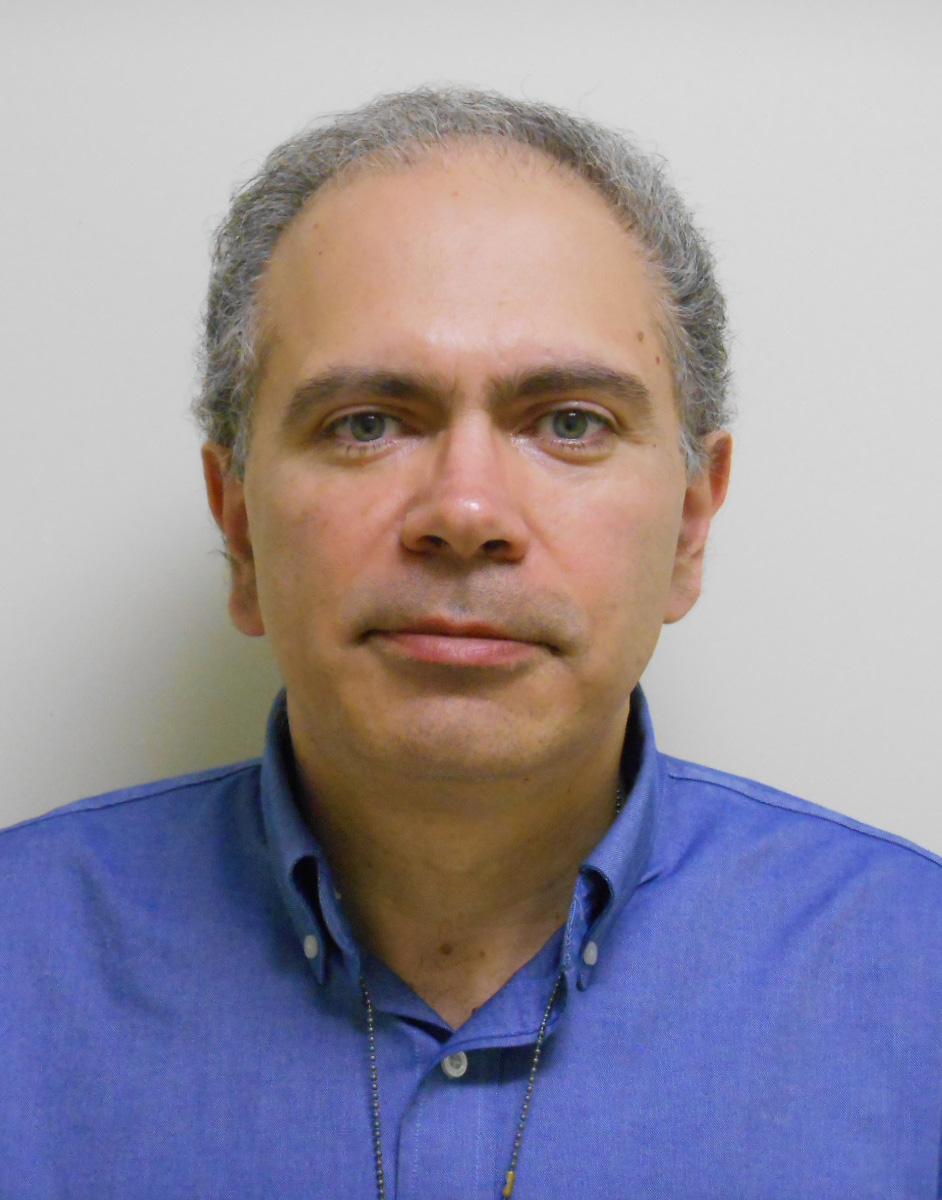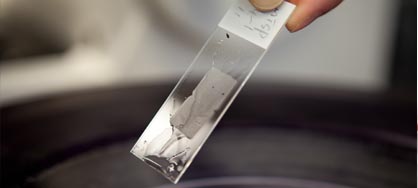
Montefiore Einstein Department of Medicine
Department Faculty

Nikolaos G. Frangogiannis, M.D.
Professor, Department of Medicine (Cardiology)
Professor, Department of Microbiology & Immunology
Edmond J. Safra/Republic National Bank of New York Chair in Cardiovascular Medicine
Professional Interests
Dr Frangogiannis’ research explores the mechanisms of cardiac injury, repair and remodeling. His laboratory has identified key molecular signals responsible for orchestrating the healing response in myocardial infarction. Research has focused on six main directions:
a) The role of chemokine-mediated pathways in cardiac injury, repair and fibrosis.
b) Signals involved in resolution of the inflammatory reaction and in containment of the fibrotic response following infarction.
c) The role of TGF-beta-activated signaling cascades in cardiac repair, remodeling and fibrosis.
d) The role of the dynamic alterations in the composition of the extracellular matrix network in modulating inflammatory pathways and cellular behavior in the injured and remodeling heart.
e) The cell biological mechanisms involved in the pathogenesis of cardiac fibrosis in the cardiomyopathy associated with diabetes and obesity.
f) The role of cardiac pericytes in cardiac repair and in the pathogenesis of fibrosis
The goals of the Frangogiannis laboratory are: i) to dissect the cellular mechanisms and molecular signals involved in the pathogenesis of cardiac remodeling, and ii) to identify novel therapeutic targets for patients with heart failure.
Selected Publications
Selected recent publications:
M Bujak, G Ren, HJ Kweon, M Dobaczewski, A Reddy, G Taffet, XF Wang, and NG Frangogiannis. Essential Role of Smad3 in Infarct Healing and in the Pathogenesis of Cardiac Remodeling. Circulation 2007; 116:2127-38.
P Huebener, T Abou-Khamis, P Zymek, M Bujak, Ying X, K Chatila, S Haudek, G Thakker, and NG Frangogiannis, CD44 is critically involved in infarct healing by regulating the inflammatory and fibrotic response. J Immunol 2008; 180:2625-33.
M Bujak, HJ Kweon, K Chatila, N Li, G Taffet, and NG Frangogiannis. Aging-related defects are associated with adverse cardiac remodeling in a mouse model of reperfused myocardial infarction. J Am Coll Cardiol 2008; 51:1384-92.
M Bujak, M Dobaczewski, K Chatila, L Mendoza, N Li, A Reddy, and NG Frangogiannis. Interleukin-1 type (IL-1RI) signaling critically regulates infarct healing and cardiac remodeling. Am J Pathol 2008; 173:57-67.
M Bujak, M Dobaczewski, C Gonzalez-Quesada, Y Xia, T Leucker, P Zymek, V Veeranna, A Tager, A Luster, and NG Frangogiannis. Induction of the CXC Chemokine Interferon-g-Inducible Protein (IP)-10 Regulates the Reparative Response Following Myocardial Infarction. Circ Res 2009; 105:973-83.
M Dobaczewski, Y Xia, M Bujak, C Gonzalez-Quesada, and NG Frangogiannis. CCR5 signaling suppresses inflammation and reduces adverse remodeling following myocardial infarction mediating recruitment of regulatory T cells. Am J Pathol 2010; 176: 2177-87.
M Dobaczewski, M Bujak, N Li, C Gonzalez-Quesada; LH Mendoza, XF Wang, and NG Frangogiannis. Smad3 signaling critically regulates fibroblast phenotype and function in healing myocardial infarction. Circ Res 2010; 107 (3): 418-28.
M Dobaczewski, W Chen and NG Frangogiannis. Transforming Growth Factor (TGF)-beta signaling in cardiac remodeling. J Mol Cell Cardiol 2011; 51:600-606.
NG Frangogiannis. The SDF-1/CXCR4 axis in cardiac injury and repair. J Am Coll Cardiol 2011; 58: 2424-2426.
Y Xia, M Dobaczewski, C Gonzalez-Quesada, W Chen, A Biernacka, N Li, D Lee, and NG Frangogiannis. Endogenous Thrombospondin-1 protects the pressure-overloaded myocardium by modulating fibroblast phenotype and matrix metabolism. Hypertension 2011; 58: 902-911.
NG Frangogiannis. Regulation of the inflammatory response in cardiac repair. Circ Res 2012: 110: 159-173.
NG Frangogiannis. Matricellular proteins in cardiac adaptation and disease. Physiol Rev 2012; 92:635-688.
W Chen, A Saxena, N Li, J Sun, DW Lee, Q Tian, M Dobaczewski, and NG Frangogiannis. Endogenous IRAK-M attenuates post-infarction remodeling through effects on macrophages and fibroblasts. Arterioscl Thromb Vasc Biol 2012; 32:2598-608.
W Chen and NG Frangogiannis. Fibroblasts in post-infarction inflammation and cardiac repair. BBA Mol Basis Dis. 2013; 1833:945-53
P Christia, M Bujak, C Gonzalez-Quesada, W Chen, M Dobaczewski, A Reddy, and NG Frangogiannis. Systematic characterization of myocardial inflammation, repair and remodeling in a mouse model of reperfused myocardial infarction. J Histochem Cytochem 2013; 61:555-570.
P Christia, and NG Frangogiannis. Targeting inflammatory pathways in myocardial infarction. Eur J Clin Invest 2013; 43: 986-95.
P Kong, C Gonzalez-Quesada, N Li, M Cavalera, D-W Lee, and NG Frangogiannis. Thrombospondin-1 regulates adiposity and metabolic dysfunction in diet-induced obesity enhancing adipose inflammation and stimulating adipocyte proliferation. Am J Physiol Endocrinol Metab 2013; 305:E439-450.
P Kong, P Christia, A Saxena, Y Su, and NG Frangogiannis. Lack of specificity of Fibroblast Specific Protein (FSP)1 in cardiac remodeling and fibrosis. Am J Physiol Heart Circ Physiol 2013;305(9):H1363-72.
A Saxena, W Chen, Y Su, V Rai, OU Uche, N Li, and NG Frangogiannis. IL-1 induces proinflammatory leukocyte infiltration and regulates fibroblast phenotype in the infarcted myocardium. J Immunol 2013; 191(9):4838-48.
C Gonzalez-Quesada, M Cavalera, A Biernacka, P Kong, DW Lee, A Saxena, O Frunza, M Dobaczewski, AV Shinde, and NG Frangogiannis. Thrombospondin-1 induction in the diabetic myocardium stabilizes the cardiac matrix while promoting vascular rarefaction through angiopoietin-2 upregulation. Circ Res 2013; 113(12):1331-44.
P Kong, P Christia, and NG Frangogiannis. The pathogenesis of cardiac fibrosis. Cell Mol Life Sci 2014 ; 71: 549-574.
AV Shinde and NG Frangogiannis. Fibroblasts in myocardial infarction: a role in inflammation and repair. J Mol Cell Cardiol 2014; 70:74-82.
NG Frangogiannis. The inflammatory response in myocardial injury, repair and remodeling. Nat Rev Cardiol 2014; 11:255-265.
A Saxena, M Bujak, O Frunza, M Dobaczewski, C Gonzalez-Quesada, B Lu, C Gerard, and NG Frangogiannis. CXCR3-independent actions of the CXC chemokine CXCL10 in the infarcted myocardium and in isolated cardiac fibroblasts are mediated through proteoglycans. Cardiovasc Res 2014; 103:217-227.
M Cavalera, J Wang, and NG Frangogiannis. Obesity, metabolic dysfunction and cardiac fibrosis: pathophysiologic pathways, molecular mechanisms and therapeutic opportunities. Transl Res 2014; 164:323-335.
A Saxena, M Dobaczewski, V Rai, Z Haque, W Chen, N Li, and NG Frangogiannis. Regulatory T cells are recruited in the infarcted mouse myocardium and may modulate fibroblast phenotype and function. Am J Physiol Heart Circ Physiol 2014; 307(8):H1233-42.
NG Frangogiannis. The pathophysiology of myocardial infarction. Compr Physiol 2015; 5:1841-75.
AV Shinde and NG Frangogiannis. Mediators secreted by myeloid cells may protect and repair the infarcted myocardium Circ Res 2015; 117:10-12.
A Biernacka, M Cavalera, J Wang, I Russo, A Shinde, P Kong, C Gonzalez-Quesada, V Rai, M Dobaczewski, DW Lee, XF Wang, and NG Frangogiannis. Smad3 signaling promotes fibrosis, while preserving cardiac and aortic geometry in obese diabetic mice. Circ Heart Fail 2015; 8: 788-798.
A Saxena, AV Shinde, Z Haque, YJ Wu, W Chen, Y Su, and NG Frangogiannis. The role of Interleukin receptor associated kinase (IRAK)-M in regulation of myofibroblast phenotype in vitro, and in an experimental model of non-reperfused myocardial infarction. J Mol Cell Cardiol 2015; 89: 223-31.
NG Frangogiannis. The reparative function of cardiomyocytes in the infarcted myocardium Cell Metab 2015; 21: 797-798.
NG Frangogiannis. Emerging roles for macrophages in cardiac injury: cytoprotection, repair and regeneration J Clin Invest 2015; 125: 2927-30.
I Russo, and NG Frangogiannis. Diabetes-associated cardiac fibrosis: cellular effectors, molecular mechanisms and therapeutic opportunities. J Mol Cell Cardiol 2016; 90:84-93.
A Saxena, I Russo, and NG Frangogiannis. Inflammation as a therapeutic target in myocardial infarction:learning from past failures to meet future challenges. Transl Res 2016; 167:152-66.
O Frunza, I Russo, A Saxena, AV Shinde, C Humeres, W Hanif, V Rai, Y Su, and NG Frangogiannis. Myocardial galectin-3 expression is associated with remodeling of the pressure-overloaded heart and may delay the hypertrophic response, without affecting survival, dysfunction, and cardiac fibrosis. Am J Pathol 2016; 186:1114-27.
NG Frangogiannis. Fibroblast-extracellular matrix interactions in tissue fibrosis. Curr Pathobiol Rep 2016; 1:11-18.
S Prabhu, and NG Frangogiannis. The cell biological basis of cardiac repair: from inflammation to fibrosis. Circ Res 2016: 119:91-112.
B Chen, and NG Frangogiannis. Macrophages in the remodeling failing heart. Circ Res 2016; 119: 776-778.
FG Spinale, NG Frangogiannis, B Hinz, JW Holmes, Z Kassiri, ML Lindsey. Crossing into the next frontier of cardiac extracellular matrix research. Circ Res 2016; 119: 1040-1045.
NG Frangogiannis. The functional pluralism of fibroblasts in the infarcted myocardium. Circ Res 2016; 119: 1049-1051.
B Chen, and NG Frangogiannis. Immune cells in repair of the infarcted myocardium. Microcirculation 2017 Jan;24(1). doi: 10.1111/micc.12305.
AV Shinde, C Humeres, and NG Frangogiannis. The role of alpha-smooth muscle actin in fibroblast-mediated matrix contraction and remodeling. BBA Mol Bas Dis 2017; 1863: 298-309.
Frangogiannis NG. The role of transforming growth factor (TGF)-b in the infarcted myocardium. J Thoracic Dis 2017; 9(Suppl 1): S52-S63.
NG Frangogiannis. The extracellular matrix in myocardial injury, repair and remodeling. J Clin Invest 2017; 127: 1600-1612.
W Hanif, L Alex, Y Su, AV Shinde, I Russo, N Li, and NG Frangogiannis. Left atrial remodeling, hypertrophy and fibrosis in mouse models of heart failure. Cardiovasc Pathol 2017;30-27-37.
AV Shinde, M Dobaczewski, JJ De Haan, A Saxena, KK Lee, Y Xia, W Chen, Y Su, W Hanif, IK Madahar, VM Paulino, G Melino and NG Frangogiannis. Tissue transglutaminase induction in the pressure-overloaded myocardium regulates cardiac remodeling. Cardiovasc Res 2017; 113:892-905.
Y Wang, B Wu, P Lu, D Zhang, B Wu, S Varshney, G Del Monte-Nieto, Z Zhuang, R Charafeddine, AH Kramer, NE Sibinga, NG Frangogiannis, RN Kitsis, RH Adams, K Alitalo, DJ Sharp, RP Harvey, P Stanley, and B Zhou. Uncontrolled angiogenic precursor expansion causes coronary artery anomalies in mice lacking Pofut1. Nat Commun 2017 Sep 18;8(1):578. doi: 10.1038/s41467-017-00654-w.
AV Shinde and NG Frangogiannis. Mechanisms of fibroblast activation in the remodeling myocardium. Curr Pathobiol Rep 2017; 5:145-152.
NG Frangogiannis. Activation of the innate immune system in the pathogenesis of acute heart failure. Eur Heart J Acute Cardiovasc Care 2017 2017 Apr 1:2048872617707456. doi: 10.1177/2048872617707456.
NG Frangogiannis. Fibroblasts and the extracellular matrix in right ventricular disease. Cardiovasc Res 2017; 113:1453-1464..
AV Shinde and NG Frangogiannis. Tissue transglutaminase in the pathogenesis of heart failure. Cell Death Differentiation 2017 Dec 13. doi: 10.1038/s41418-017-0028-9 (epub ahead of print).
P Kong, A Shinde, Y Su, I Russo, B Chen, A Saxena, SJ Conway, JM Graff and NG Frangogiannis. Opposing actions of fibroblast and cardiomyocyte Smad3 signaling in the infarcted myocardium. Circulation 2018 Feb 13;137(7):707-724.
S Huang, and NG Frangogiannis. Anti-inflammatory therapies in myocardial infarction: failures, hopes and challenges. Br J Pharmacol 2018 Feb 2. doi: 10.1111/bph.14155 (epub ahead of print).
L Alex and NG Frangogiannis. The cellular origin of activated fibroblasts in the infarcted and remodeling myocardium. Circ Res 2018 Feb 16;122(4):540-542.
NG Frangogiannis. Cell therapy for peripheral artery disease. Curr Opin Pharmacol 2018; Feb 13;39:27-34.
NG Frangogiannis. Cell biological mechanisms in regulation of the post-infarction inflammatory response. Curr Opin Physiol 2018; 1: 7-13.
AV Shinde, Y Su, BA Palanski, K Fujikura, MJ Garcia, and NG Frangogiannis. Pharmacologic inhibition of the enzymatic effects of tissue transglutaminase reduces cardiac fibrosis and attenuates cardiomyocyte hypertrophy following pressure overload. J Mol Cell Cardiol 2018; 117: 36-48.
L Alex, I Russo, V Holoborodko, and NG Frangogiannis. Characterization of a mouse model of obesity-related fibrotic cardiomyopathy that recapitulates features of human Heart Failure with Preserved Ejection Fraction. Am J Physiol Heart Circ Physiol 2018; 315:H934-949.
NG Frangogiannis. Cardiac fibrosis: cell biological mechanisms, molecular pathways and therapeutic opportunities. Mol Asp Med 2019; 65:70-99.
NG Frangogiannis. Protean functions and phenotypic plasticity of regulatory T cells (Tregs) in chronic ischemic heart failure. Circulation 2019; 139:222-225.
B Chen, A Brickshawana, and NG Frangogiannis. The functional heterogeneity of resident cardiac macrophages in myocardial injury. CCR2+ cells promote inflammation, whereas CCR2- cells protect. Circ Res 2019; 124:183-185.
I Russo, M Cavalera, S Huang, Y Su, A Hanna, B Chen, AV Shinde, SJ Conway, JM Graff, and NG Frangogiannis.Protective effects of activated myofibroblasts in the pressure-overloaded myocardium are mediated through Smad-dependent activation of a matrix-preserving program. Circ Res 2019; 124: 1214-1227.
S Huang, B Chen, Y Su, L Alex, C Humeres, AV Shinde, SJ Conway, and NG Frangogiannis. Distinct roles of myofibroblast-specific Smad2 and Smad3 signaling in repair and remodeling of the infarcted heart. J Mol Cell Cardiol 2019; 132:84-97.
NG Frangogiannis. Can myocardial fibrosis be reversed? J Am Coll Cardiol 2019; 73: 2283-2285.
B Chen, S Huang, Y Su, Y-J Wu, A Hanna, A Brickshawana, JM Graff, and NG Frangogiannis. Macrophage Smad3 protects the infarcted heart, stimulating phagocytosis and regulating inflammation.Circ Res 2019; 125: 55-70.
NG Frangogiannis. The extracellular matrix in heart failure. Circ Res 2019; 125: 117-146.
Material in this section is provided by individual faculty members who are solely responsible for its accuracy and content.
Albert Einstein College of Medicine
Jack and Pearl Resnick Campus
1300 Morris Park Avenue
Forchheimer Building, Room G46B
Bronx, NY 10461
nikolaos.frangogiannis@einsteinmed.edu



